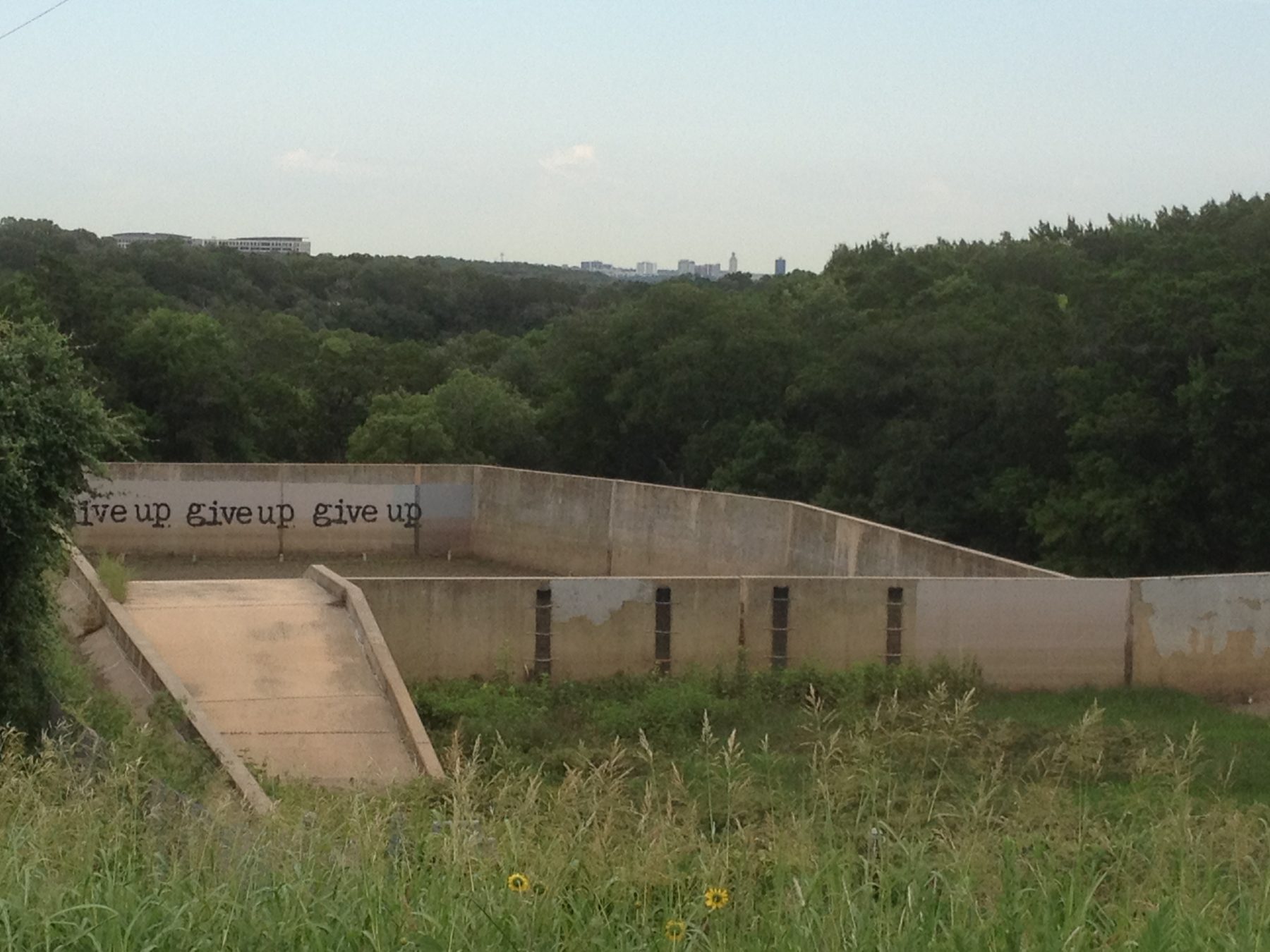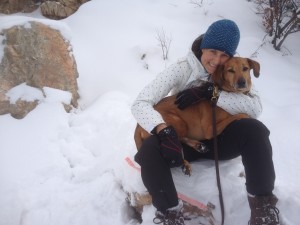Injured and Having a Bad Day? Advice for Breaking Through

Awesome, amazing, spectacular, incredible, the best ever, PR (personal record): Demonstrative superlatives infiltrate our vocabulary, thoughts, Facebook status updates, and Tweets. Doesn’t it seem like the onslaught of exaggerated happiness leaves little room in our culture for having a really bad day? Pay too much attention to Facebook, and you’ll fall into the trap of believing your friends never have such days (and that you shouldn’t either). I’m talking about a day where you feel like your spirit and resilience have flown off your car’s rooftop, landing in some never-to-be-located ditch, just like the coffee cup you forgot up there when you drove away.
Your spirit is gone, but many of your friends don’t want to hear it when you’re down in the dumps. Instead of listening with compassion, you feel dismissed when they tell you to get it together or that you don’t have it so bad—or, more likely, if they simply show no interest in you. You internalize our culture’s attitude toward negativity (I’m referring to having a bad spell, not being a chronic sourpuss) and bad days, kicking off a toxic cycle. You’re having a bad day; then you get pissed at yourself because you’re having a bad day. It’s an endless cycle, and soon, the negative is all you can see.
First, realize that it’s ok to have bad days; don’t make them worse by berating yourself. Somewhere along the way, our culture has forgotten that bad days are completely normal, especially for an injured athlete. Feelings of frustration, anger, and jealousy riddle the minds of injured athletes—and they’re all perfectly acceptable feelings, no matter what your friends may claim. In fact, bad days serve a very important role as potential teachers.
The second realization is dirty little secret #17 of being an injured athlete: Don’t fight bad days. Don’t tell yourself, “It’s not that bad.” Our culture screams at you to fight your hardest to turn a bad day around. Don’t.
Why not? Simply put, it may be a colossal waste of energy. If your thoughts are running Mach 3 in the wrong direction, you’ll exhaust yourself both trying to stop the thought train, and trying to turn it around. Most importantly, when you deny or repress your negative feelings, they’ll sneak back up on you with a vengeance, often with increased intensity.
Instead, give yourself permission to have a bad day, and take the opportunity to use your bad day as a teacher. Make your bad day constructive and productive by following these steps.
It’s ok to have a bad day (or even days), but don’t do it in isolation.
Tell a trusted friend you’re in a bad place and need to work through it. Ask your friend to check in regularly and keep an eye on you. Sometimes when you’re in the bottle you can’t read the label. Consider this friend your label reader. Agree on a maximum duration of bad days, after which time your friend has license to raise the red flag and suggest you seek professional help—and you have an obligation to listen and act.

Killing two birds with one stone on a snowshoe with my wise red dog, Bella (Photo credit: Heidi Armstrong)
Go find an animal and love on it.
If you don’t own a pet, borrow a friend’s for an afternoon or three. You don’t have to look far to read about the healing powers of animals. They can lower blood pressure, decrease pulse, and help alleviate stress. They make us smile, and their sense of mental balance and contentment is contagious.
Go outside and get some Vitamin D.
If you’re under house arrest, grab a chair and sit in the sun. This tip seems so simple, you may be tempted to ignore it. Don’t. Studies link low Vitamin D levels to multiple health issues, including depression. Sometimes a few minutes of sun and a change of scenery make all the difference. If you’re more mobile, go for a walk in your favorite park, or, if you have a lower body injury, consider renting a kayak on Lady Bird Lake.
Talk to a friend, but not just any friend.
Reach out to a close friend, maybe someone who can relate to what you’re experiencing. Sometimes you need a friend who will listen and offer reassurance instead of a friend who delivers tough love and tells you to pull yourself up by your bootstraps. On the other hand, maybe that drill sergeant friend is who you need. Either way, make the right choice.
Brainstorm an activity within your physical ability that’ll make you feel good about yourself afterward.
Has your dirty toilet been nagging you? Would you feel better if it was clean? It’s not a good idea to feed an obsession, but if you have something to do that is truly productive, have at it. Cook dinner. Write thank you notes to people who have supported you. Practice yoga or meditate.
Volunteer
Consider volunteering some of the extra time you have on your hands. Volunteering changes your focus to empathy, appreciation, and someone else’s needs. It allows you to use your brain in ways you normally don’t, removing the fog of self-pity, frustration, and impatience. If you’re in Austin, we have a list of laudable non-profits at www.ilivehereigivehere.org. You may just find that volunteering becomes part of your life forever.
Sleep
It’s one of your most important tools as an injured athlete. It’s the foundation for your mental attitude. No sleep = increased anxiety, impatience, and frustration. What if you slept until you weren’t tired? What if you slept whenever possible? Go through your calendar for the next two weeks and cancel every obligation that isn’t essential to your life and sleep. Afterward, you’ll be more able to approach your injury with a balanced mind. This will hasten your recovery, allowing you to return to all the things you love sooner.
Here’s where your bad day steps in as a life teacher. Three days after your bad day, with a paper and pen, write down the answers to these questions: 1) What triggered your bad day; 2) Was it something big or something small; 3) In retrospect, do you feel you may have overreacted; 4) The next time that trigger occurs, what’s your plan? Write it down. In all things, work towards a balance: Don’t berate yourself for having bad days, but find ways to reduce their frequency and negative effects.

My best friend Christine and her new turtle friend enjoying a kayak adventure on Lady Bird Lake (Photo credit: Heidi Armstrong)
Bad days can strike when you least expect. Only four days after a high point with my new business, my brain came unglued. I was ready to give up. Something minor kicked it off; then, for some reason, my head jumped straight to abandoning my dream. In retrospect, it makes no sense, but bad days rarely do. At the time, I reached out to two good friends. They patiently listened, offered logic (where I had none), helped me uncover the exact cause of my bad day, asked questions like, “Why is walking away your first reaction?” that instantly halted my reeling mind, and offered advice far removed from giving up. They helped me see a way out I couldn’t find by myself. They brought me back to the middle, that important place we fail to see when we’re having a bad day. The middle is where problems are solved and progress happens. The middle equals, “Give this a try. I think it’ll work.” Christine and Ken, my friends who inspired this blog, are my label readers, my drill sergeants, and my compassionate support. I hope this blog helps to guide you in the same way they have guided me.
Bad days happen to everyone, whether our pride allows us to admit it or not (and whether our Facebook statuses acknowledge it or not). They can appear out of nowhere, like your in-laws who show up unannounced. Be nice to yourself when you’re having a bad day. For me, every bad day brings an opportunity to learn something that might help me or someone else in the future. Don’t miss the opportunity to perform an autopsy on your bad day and learn from it. Remember: Every day is a school day.






